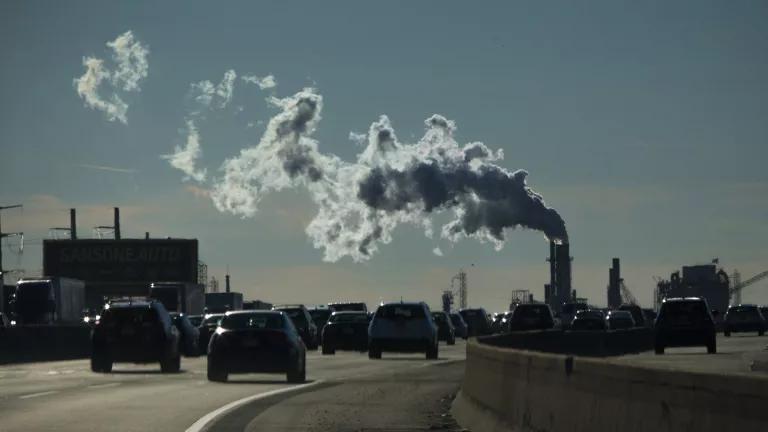Post-Florence: Return to Normal for Big Ag but Not Neighbors

As the residents of North Carolina begin the long process of recovery, our thoughts are with the people whose health and well-being are endangered because of this storm. State and federal governments must do everything in their power to help all people recover. We stand with communities impacted by this hurricane.
After the storm, I spoke with Devon Hall the program manager of Rural Empowerment for Community Help (REACH),* a frontline community-based organization based in Duplin County, North Carolina where, in that county alone more than 1.7 million hogs produce more than twice the waste than all the people in the city of Philadelphia. Unlike with human waste, the standard practice is not to treat animal waste. Instead, hog operators store it in open cesspools and spray it (untreated) onto land. Because of the concentration of industrial animal facilities the threat from Concentrated Animal Feeding Operations (CAFOs) is never far from anyone’s mind in their area. In the wake of the storm, Devon said that most people are just trying to get back to normal, pick up the pieces, and get back into their homes. In contrast, the primary industry group that represents North Carolina pork production said that “most” facilities returned to “normal operations” just a few days later. Those that did not return to normal, those with breached or overtopped lagoons, spewed untold amounts of animal feces laced with superbugs and other contaminants into communities and waterways with catastrophic results.
REACH often focuses on CAFOs because beyond the incredible concentration of hogs in Duplin County, North Carolina as a whole is the second-leading producer of turkeys and hogs in the nation, and the very vast majority of those animals are confined in large industrial facilities that are dangerous to neighbors and miserable for animals. CAFOs routinely overuse antibiotics that are important in human medicine on animals when they are not sick to help them survive crowded and unsanitary conditions—as a result, are hotbeds of superbugs, and neighbors suffer disproportionately from antibiotic resistant infections. The hydrogen sulfide and ammonia they release into the air cause respiratory problems including scarring of the lungs. CAFOs contaminate surface waters and drinking water with many dangerous pollutants.
Like many places impacted by Hurricane Florence, the communities REACH serves are predominantly communities of color. REACH has done groundbreaking scientific research about the hazards from CAFOS that communities of color in North Carolina face day in and day out, especially antibiotic resistant superbugs that emanate from the facilities. Past recoveries have left communities of color behind.

According to the North Carolina Department of Environmental Quality, since Hurricane Florence deposited multiple feet of rain in the state, more than 30 football-field-size lagoons of untreated hog waste have overflowed, and by one count, 110 have released waste or are at a high risk of releasing waste. Many have become inundated with surface water surrounding them, are completely full, or even worse have suffered structural damage.
This has happened before, and unless there are changes to business as usual at CAFOs in North Carolina, it will happen again. NRDC has long called for banning the lagoon and sprayfield system. The community strongly supports an approach in which animal waste would be treated, similar to human waste. There are technological solutions that would provide this option and they have become more feasible in recent years. Governments can and should take steps to ensure that no new CAFOs are sited in in floodplains. Federal authorities are slated to reduce enforcement at CAFOs beginning in October. Instead of weakening protections, federal, state, and local governments should take steps to ensure this does not happen again.
*REACH works to empower community members personally and economically so that they will have the opportunity to thrive that all people deserve. In the area REACH serves, where hogs outnumber people more than 30-to-1 and their billions of gallons of waste is sprayed (untreated) onto land in close proximity to homes, schools, and churches.
This blog provides general information, not legal advice. If you need legal help, please consult a lawyer in your state.



